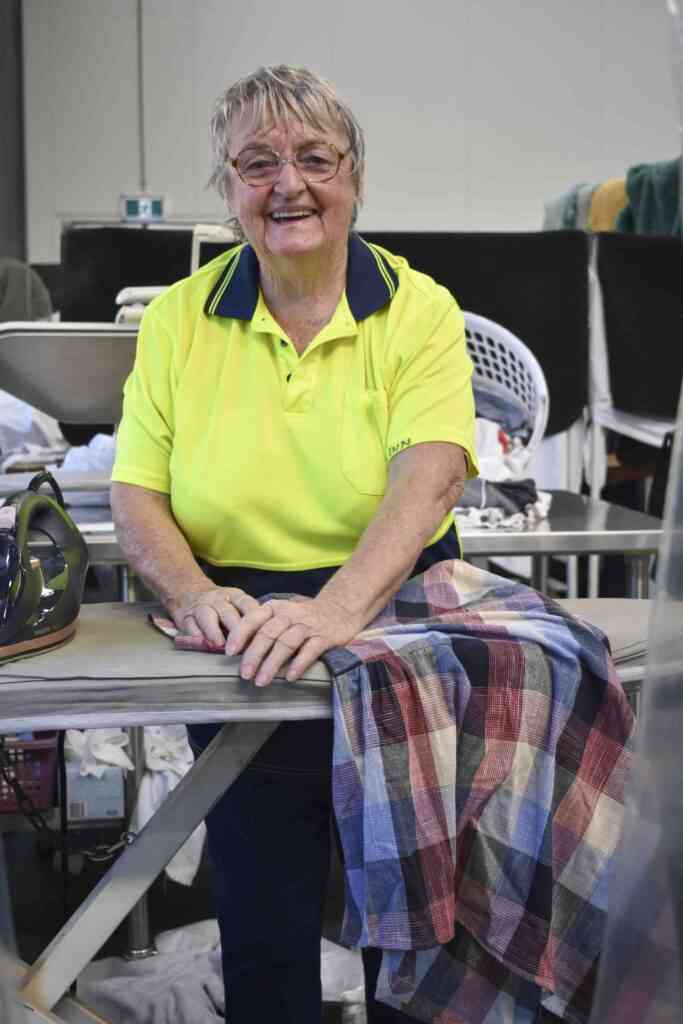- Home
- Stronger Together
- Support & Wellbeing
- Disability & NDIS
- Mental Health
- Families & Parenting
- Support for Individuals
- Community Health
- Employment & Training
- About Us
- About us
- Get Involved
- Governance
- Social Enterprises
By Tanya O'Shea, IMPACT Community Services' Managing Director
"STRONGER TOGETHER" is a weekly column where Tanya explores key issues. This weeks Tanya focuses on what older workers bring to the workforce.
At IMPACT Community Services, we pride ourselves on our commitment to fostering a culture of diversity and inclusion. Our values include a focus on celebrating uniqueness, creating a place built on dignity and respect that applauds individuality and where everyone is welcome.
We create regular opportunities to have deliberate conversations about diversity and inclusion and what it means for our organisation. We aim to dig deep, engaging in thought-provoking discussions that challenge our personal beliefs, values and worldviews, in addition to unearthing our unconscious bias.
Unconscious biases are our thought patterns, our mental shortcuts that we create over a lifetime.
Imagine walking into an unlit car park at night in the rain and seeing a stranger approaching in a raincoat and hoodie. We immediately make a snap judgement about that person. We question whether we can trust them, and our body fills with adrenaline as we sense danger and prepare for our flight, fight or freeze response.
These things happen automatically.

Remember when you first learnt to ride a bike or drive a car. You needed to think through every step logically until learning this new skill became automatic. Once you learn the skill, you can do a complex activity like driving a car without consciously thinking about it.
In a similar way, our unconscious biases support us to navigate a complex social world. The only problem is that these biases can have negative effects. We make snap judgements about others all the time: when we see a figure walking towards us on a dark, rainy night; a person that we pass on the street; the people we work with; a person that we interview for a job.
We construct stereotypes that have been developed over time to make judgements about people every day. These stereotypes can be built from direct personal experience, from other people or via the media. And they can result in many forms of discrimination – too many for us to focus on in one article.
I would however like to touch briefly on age discrimination.
Before sharing a personal story, it is important to note that ageism is not just an issue for older people. It can affect people of any age. However, when directed towards older people, it comes from negative attitudes and beliefs about what it means to be older.
After turning 50 a few months ago, I reflected on a podcast where a woman was lamenting about not being taken seriously at her workplace and remarked “On top of all that, no one in the world sees me anymore because I’m an older woman.”
Whilst her comment was said in jest, the reality is that she was only half joking. Research suggests that it is not uncommon for people over the age of 45 to experience ageism, described by some as a feeling of being invisible.
And then it happened to me.
Standing at the bar of our quiet local sports club, the young man served the person to the right of me and then went to serve the person to the left – even though I had been standing there in his full view for the entire time.
It is easy to fob this off as an extraordinary, once off, unusual event. Yet, the reality for many over the age of 45, is that this feeling of being ‘invisible’ is age discrimination, and for some, it is not a one-off experience.
And like any form of discrimination, it is unacceptable.
At IMPACT, we have many dedicated, valuable staff working beyond the age of 65: Gwyn Bishop, Tony Cartledge and Ann Duffy, who at the age of 78, informally mentors younger workers at IMPACT’s New Image Laundry.
Each of these incredible people brings a specific skillset that would have been lost if not harnessed to help shape IMPACT’s culture, in addition to supporting us to achieve our vision of Improving Lives.
Age inclusivity makes common sense: cognitive diversity, variety of skills and talents, and a depth of personal experiences to draw from. According to social commentator Jane Caro, “When you discriminate against age you are shooting yourself in the foot. Every older person wants to be taken seriously and treated as an individual.”
Being inclusive of people of all ages is something that we can all do better.
Take notice the next time that you are not valuing someone who is a different in age to yourself.
Be curious and challenge any biases that come up for you.
Ask yourself, ‘What can I learn from this person that will make me a better human being?’